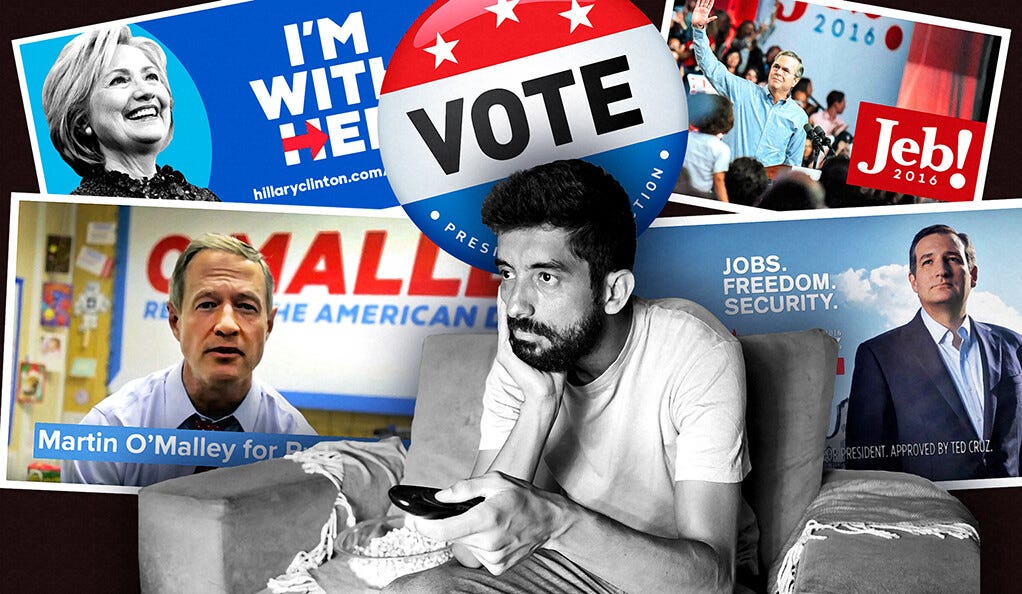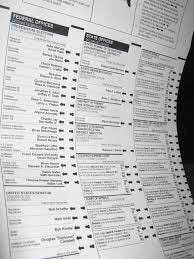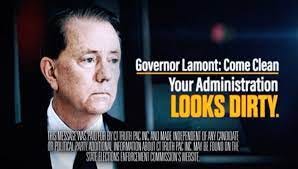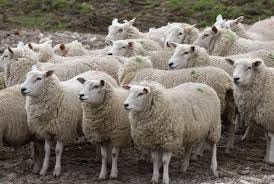Well, here we are. The mid-term elections are right around the corner, on November 8. And I will be so relieved when it’s finally over. Sadly, though, the respite is short: the next election season – the BIG one – follows shortly.
There are so many things about election season that are infuriating, nauseating, irritating, waste taxpayer money, or are just plain silly:
The endless political advertisements that lack in substance but are full of nonsensical fodder and wicked negativism.
The wasted news media space for useless endorsements.
The bickering over voting integrity.
The monster-sized ballots.
And oh-so-much more.
Even when election season is finally over, the idiocy doesn’t end. If one does the math, it becomes clear that the “winner” rarely represents the “will of the populace” – not by a long shot. Consider the election for President of the U.S., arguably the highest voter turnout race of them all. About 150 million people will vote in 2024, and the winner will probably get around 52%. That’s about 78 million votes. Out of a national population of 330 million, that is 24%. Is 24% a “mandate”?!? And that’s the Presidential election – the further you go down the ballot, the lower the voter turnout gets.
My faithful readers should know by now that I don’t just gripe about the state of things without tapping into my boundless wisdom and offering up some intelligent and workable ways to fix this (mostly) government-created mess. Here are my suggestions, grouped by responsible party.
What the State can do:
First, ballots are too darn long, too complex, and too frequent. Here are some suggestions to fix that.
One is to go with a unicameral legislature. Why do states need a senate? Remember from your U.S. History class that the federal bicameral legislature was a compromise between the large states, who wanted proportional representation, versus the smaller states, who wanted it equal. So the founding fathers created both. But nothing like that exists at the state level. State senates consume vast amounts of taxpayer money, demands on voters, and other resources. Currently, only Nebraska is unicameral, and it works just fine.
Another is to get rid of state-supported primaries. There is absolutely no reason why taxpayers should fund a political party’s nomination process. If a group of voters want to organize together, and call themselves, for example, “The Republican Party”, and select, from amongst their members, the best candidate, then they should do so at their own expense and on their own time, using whatever process and member verification method they choose. When done, they submit their nominee(s) to the state. This would save tons of money and do away with an entire election phase. Plus it eliminates the shenanigans where members of the opposing party fraudulently cast votes for inferior candidates.
Next is to stop electing judicial officers. A judge is different from a legislative or executive officer, where we voters can make our choice based on the candidate’s ideology and issue stances. But a judge does not set policy. His/her politics are irrelevant. Thus we’re supposed to choose them based on personal qualifications such as wisdom, maturity, temperance, and integrity. How the heck is your typical voter supposed qualify those things? So get judges off the ballot, select them through some other means, shorten the ballot, and save voters the hassle.
Here's a suggestion that would surely get disenfranchised voters off the couch. Include, on the ballot for every elected office, an option for: “None Of The Above.” If that option wins, then the office remains unfilled and unfunded, until the next election cycle.
And finally, let’s ease ballot access so that minor parties can compete fairly. Ballot requirements vary by state, and some states have requirements that are nearly impossible to achieve or horribly expensive if you’re not a Republican or a Democrat. Having minor parties is a huge plus because, since they’re not all about winning, they can focus solely on issues, and be very ideologically consistent.
What the news media can do:
First, give equal publicity to all candidates, regardless of latest poll numbers, party affiliation, and financial status. A candidate is a candidate is a candidate, and they all deserve to have their voice heard. If a candidate’s message is bunk, let the voters make that call - not you, news outlet! Your role is to inform the public, not decide election outcome.
Next, how about terminating all campaign advertising on the first day of early voting? Some states have ridiculously long periods; six states allow 40 or more days for early or absentee voting before the general election date. When the very first voter casts the very first ballot, then the election season is essentially over. Give your readers/listeners/watchers a break!
Along those lines, establish a policy where negative advertising will not be allowed. (More on this below.)
Finally, abolish the stupid candidate endorsements. I do not give a flying fart who you endorse, news media outlet. It’s a ridiculous waste of print space. Again: your job is to inform, not decide election outcome. As an alternative, just give each candidate a set amount of space, and have them submit their own endorsements. (And if a candidate fails to submit anything, then so say.)
What parties & candidates can do:
First let’s talk about ballot integrity and voter fraud. As incredible as it sounds, we all really want the same thing: that anyone who wishes to vote can do so, and ensure that all votes are counted and nobody cheats. But to accomplish that, all parties need to admit that yes, we all have the same goal here! And then be ready, willing, and able to sit down like grown-ups and discuss it and come up with solutions.
Secondly, let’s all end the attack ads. Nothing nauseates me like an election advertisement that accuses an opponent of all sorts of nasty things – and it all might not even be factual. A campaign ad should say only positive things about what a candidate will accomplish if elected. (The news media also has a role here in cleaning up this mess.)
What voters can do:
First, realize that democracy is not a sport. Yes, go to the ballgame and yell for your team all you want – but understand that politics is much more serious.
Don’t be a sheep. Don’t vote for some candidate just because he/she is most popular and “everybody else” is for him/her. And get rid of the yard signs and the bumper stickers, which only contribute to the sheep mentality.
Consider all of the candidates, even the ones that the news media tends to ignore (see above). Focus on issues - not razzle-dazzle, not the size of the candidate’s war chest, nor the volume of paid advertising. Find the candidate who best aligns with your ideology, and support him/her, even if nobody else is. Doesn’t that make more sense that supporting some scumbag that you disagree with on nearly everything? Remember that if any candidate gets a sizable chunk of votes, they can still have influence, even if it wasn’t enough to win.
And if all of the candidates are scumbags, then stay home! You do not have a Constitutional duty to vote for some idiot. To do so is basically saying: I like what you do, and want you to keep doing it.











Exhibit A: The quality of Senate candidates in GA and PA from both major parties.
should have to pass the citizenship test to vote